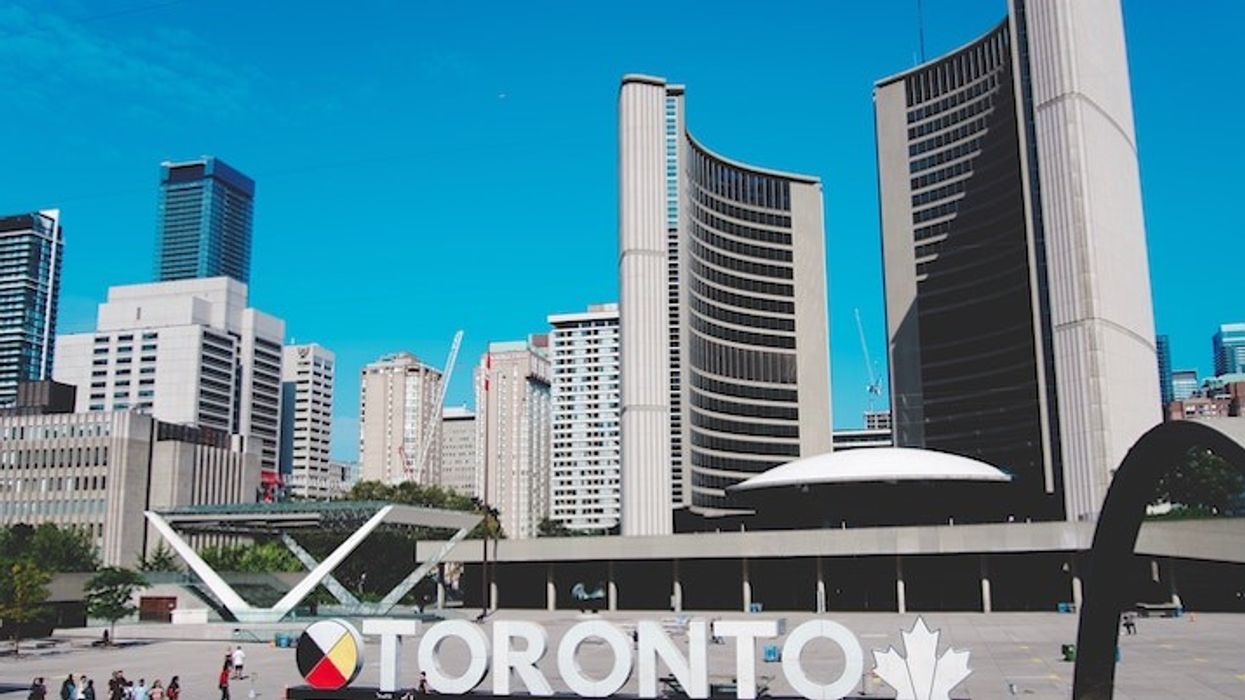The second presumptive case of the Wuhan Coronavirus has been confirmed in Toronto.
Health officials confirmed the news Monday morning, saying that the wife of the first coronavirus patient in Canada has also tested positive for the virus at Ontario’s public health laboratory.
Since arriving in Toronto with her husband, this individual has been in self-isolation.
"We are working alongside Toronto Public Health, who has been in regular contact with the individual during their self-isolation period," said Dr. David Williams, Chief Medical Officer of Health. "Given the fact that she has been in self-isolation, the risk to Ontarians remains low."
Dr. Williams, joined by Dr. Barbara Yaffe, Associate Chief Medical Officer of Health, and Dr. Eileen de Villa, Medical Officer of Health for the City of Toronto, will provide an update on the emerging situation Monday morning at Queen's Park.
READ: Province “Ready to Respond” if Coronavirus Makes its Way to Canada
According to Toronto Public Health, the first confirmed patient recently returned from Wuhan on China Southern Airlines flight CZ311, which arrived in Toronto on January 22 from Guangzhou.
Passengers on this flight who are not contacted by public health and subsequently become ill with respiratory signs and symptoms such as a cough, fever, or difficulty breathing are recommended to:
- Stay at home while you are sick
- Call your local health department for further guidance which may include testing for the novel coronavirus
Toronto Public Health says the risk to the city remains low and it will continue to actively monitor the situation in collaboration with provincial and national health agencies and stakeholders that include local hospitals, airports, and community agencies.
The city is also reminding the public that it's also cold and flu season and, as such, everyone should remember the importance of good infection prevention and control practices to help protect against getting sick and prevent the spread of illness. These practices include:
- Getting an annual flu vaccine
- Washing your hands frequently with soap and water or using an alcohol-based hand sanitizer
- Covering your mouth and nose when you sneeze or cough
- Sneezing or coughing into your sleeve or arm if you don't have a tissue
- Staying home if you are sick
Dr. de Villa is advising those that were on the flight and don't have any signs of illness to continue with their routine activities.
"Our overall advice remains the same: if you don't need to be managed in a hospital because of your given medical condition, if you are not sick enough to require hospitalization to recover from a respiratory illness, we recommend staying home with plenty of rest and fluids to let your body recover. This is standard care for this type of illness," said Dr. de Villa.
READ: Toronto Public Health Actively Monitoring Coronavirus
At this time, Toronto’s Pearson International Airport is taking precautions to ensure the safety of Canadians by asking travellers a screening question at electronic immigration kiosks if they have travelled to areas affected by the coronavirus in the last 14 days and they will be reminded to report flu-like symptoms to border services agents.
Additionally, there will also be messaging on arrival screens about the coronavirus.Coronaviruses are part of a large family of viruses that cause respiratory illnesses, with a wide range of severity. They include the common cold, but also more severe illnesses like SARS. So far, health officials do not believe the virus to be as deadly as it is contagious
According to the Centers for Disease Control and Prevention, the novel (new) coronavirus was first identified in Wuhan City, Hubei Province, China, with most cases linking to the Huanan Seafood Market (also known as Wuhan South China Seafood City and South China Seafood Wholesale Market).
- Avoid high-risk areas such as farms, live animal markets, and areas where animals may be slaughtered
- Avoid contact with animals (alive or dead), including pigs, chickens, ducks, and wild birds
- Avoid surfaces with animal droppings or secretions on them
- Avoid contact with sick people, especially if they have a fever, cough, or difficulty breathing
Travellers are reminded to follow the usual health precautions:
Wash your hands often
- Wash your hands often with soap under warm running water for at least 20 seconds
- Use alcohol-based hand sanitizer only if soap and water are not available. It’s a good idea to always keep some with you when you travel
Practise proper cough and sneeze etiquette
- Cover your mouth and nose with your arm to reduce the spread of germs.
- If you use a tissue, dispose of it as soon as possible and wash your hands afterwards.
Monitor your health
If you become sick when you are travelling or after you return, avoid contact with others except to see a health care professional. Tell them:
- Your symptoms.
- Where you have been travelling or living.
- If you have had direct contact with animals (for example: visited a live animal market) or close contact with a sick person.
If you feel sick during your flight to Canada or upon arrival, inform the flight attendant or a Canadian border services officer.





















